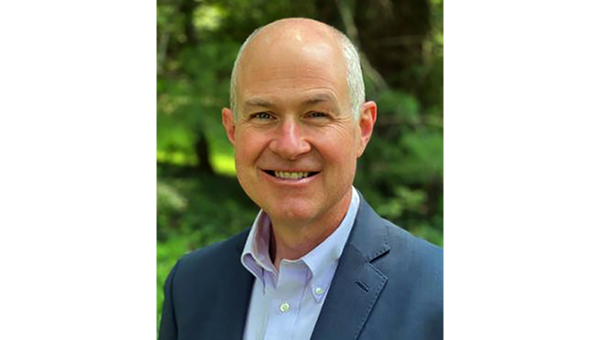Ward: No Sunshine violation by board
Published 12:03 pm Wednesday, June 4, 2014
“We did not violate the Sunshine Law.”

Director of Schools Kevin Ward reported to the Board of Education on Tuesday that an attorney for the Tennessee School Board Association said the Board did not violate state law in its handling of a called meeting last week.
That’s what Carter County Director of Schools Kevin Ward told the Carter County Board of Education during a workshop on Tuesday about questions raised by the Elizabethton Star over whether a recently held special called meeting was legal.
The meeting and the questions raised by the Star came up during a report to the board by its attorney, John Banks, on the filing of a lawsuit against the City of Elizabethton seeking to receive liquor-by-the-drink tax revenues which the Board feels is owed to the school system by the City.
“We filed our complaint on May 29,” Banks told the board about the lawsuit. “We beat the deadline.”
“There was some question raised by an article in the Elizabethton Star newspaper as to whether or not the meeting was legally held,” Banks said. “This was an emergency situation and I feel we fall well within the statute on an emergency situation.”
In a story appearing in Tuesday’s Star, Rick Hollow, general legal counsel for the Tennessee Press Association, said that, based on how the notification of the meeting was handled, the legality of the meeting and any action taken during the meeting could be in question.
“If all they did was post a notice on a bulletin board in a public place and leave a voice mail on a reporter’s phone, then you do not have adequate public notice,” Hollow told a Star reporter on Monday. “Based on just those facts it is an apparent violation of the Open Meetings Act, so any action that they took, if they took any action, could be nullified if the meeting were challenged.”
Ward also addressed the board and said he wanted to offer a clarification regarding the questions raised by the Elizabethton Star.
He said that a notice for the meeting was posted on Thursday, May 22, but that the media was not notified of the meeting until Tuesday, May 27. He said that was because it was not certain until that time that the meeting would actually be necessary, because it was hoped that a resolution could be reached with the city without the need for legal action.
According to Ward, the notice was posted on a bulletin board at the school system’s central office, which he said is the way the Board advertises all of its meetings. Ward said he directed a member of the staff to contact Elizabethton Star reporter Ashley Rader to inform her of the meeting, and the staff member reported back to him that she had been unable to reach Rader but had left a voice mail message for her. Rader said she received no such voice mail message either on her office voice mail or on her cell phone voice mail.
“The way our policy reads is ‘what is practical.’ We did ‘what is practical’ so we did not violate the Sunshine Law,” Ward said, adding that a member of the local media was in attendance at the meeting “so that is proof that we did not violate the Sunshine Law.”
Ward said that he spoke with the attorney for the Tennessee School Board Association about the notice given for the called meeting and he was told the Sunshine Law had not been violated.
However, Hollow’s take was quite different, saying that even had Rader received the message, it would not have constituted “adequate public notice” for the special called meeting. “It would be very difficult for me to believe that a court would find that to be adequate public notice,” Hollow said.
Although Banks said he felt the meeting was not in violation of the Sunshine Law, he did recommend that the board take action to rectify the situation since it had been called into question. “Let’s just put it on the agenda for our next board meeting and vote on it again,” said Banks of the vote held during the called meeting to approve the filing of the lawsuit. “There was certainly no intention on anyone’s part to have a secret meeting.”
Banks reported that normally the City of Elizabethton would have 30 days from the filing of the complaint to legally file response. He said other school systems have filed suit over the distribution of these tax revenues and currently many are watching the “Cleveland” lawsuit to see what the results of that case are.
The lawsuit Banks referred to was filed about two months ago by Bradley County Schools against the City of Cleveland asking for declaratory judgement regarding the city’s distribution of liquor-by-the-drink tax revenues.
Members of the board also discussed a much lighter, happier and more filling topic – participation in a federal program which would help provide free meals to school children.
Through the Community Eligibility Provision, individual schools, groups of schools or even entire school districts can qualify to provide free meals to all the children in the specified group if at least 40 percent of the students in the group are eligible for free meals automatically through participation in another means-tested assistance program – such as children of families who receive Supplemental Nutrition Assistance Program, foster children, or those children classified as being homeless.
Marisa Potter, who is over the free or reduced-cost school meal program for the Carter County School System, spoke to the Board about the school system’s current participation in the free/reduced program and the changes that could be made with the new program, which is part of the Healthy, Hunger-Free Kids Act.
Potter said the CEP has the potential to not only be a self-sustaining program but also has the potential to make money for the county through the reimbursements received through the United States Department of Agriculture. She said the number of students currently on the roster for free or reduced meals would not be sufficient for the program to earn money for the county, but the CEP has a broader eligibility than the current program. That means more children would become eligible under CEP, so participation would increase.
Members of the Board spoke favorably about participation in the program.
“It’s difficult for me to believe that in Carter County with the economy the way it is that we don’t have a higher number of students eligible,” said board member Jerry McMahan.
Ward said he “felt confident” the school system could work with the principals of the schools to find the students who are eligible for the program. He said the school system would continue looking into the CEP program and it would be discussed at the Board’s regular meeting on June 19.
According to the USDA, school districts wanting to implement the CEP for the 2014-2015 school year must decide by June 30 to participate in the program.





